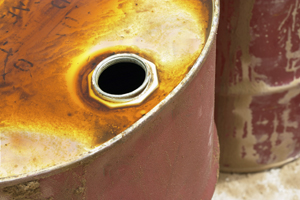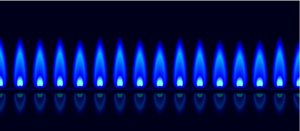One year of EER Online
on
One year of EER Online
It has been one year now since European Energy Review (EER) changed from a paper magazine to a fully online medium. In this brief update, I would like to tell you a little bit about what happened in this year, and what our plans are for the future.
 |
The way it works now is as follows. Instead of one magazine every two months, we publish (on average) two new articles every week on our website. These articles are announced through our twice-weekly newsletter. By registering for our newsletter (free of charge), readers get full access to our website. The registration makes it possible for us to see who is reading EER. This is important information for the editorial team and for possible advertisers.
All our articles are original material, written by specialist correspondents and energy professionals from across Europe. They are all aimed at informing you of the underlying developments and trends in the European energy market, which is after all our raison d’être: we are the only journalistic medium
| The number of free subscriptions to our newsletter has seen steady growth throughout the year. We now have 28,550 subscribers |
Visitor numbers of our website have also shown steady growth throughout 2010 (except for July and August, for obvious reasons). November 2010 has so far been our best month. We were able to welcome over 70,000 absolute unique visitors to our website last year, who together recorded some 310,000 unique page views. (And no, these figures do not include “phantom clicks” or “phantom visitors”. You may know that nowadays websites sometimes buy “visitors” in India and other countries, simply to boost their numbers. At EER, we do not even count our own clicks!)
Our visitors came not just from Europe, but from all over the world – more than 100 countries, in fact. The top-ten countries were the following:
1. The Netherlands (our home base)
2. United Kingdom
3. Belgium
4. United States
5. Germany
6. France
7. Italy
8. Russia
9. Switzerland
10. Canada
 |
1. Brussels
2. London
3. Paris
4. Amsterdam
5. Moscow
6. Groningen (our home base)
7. The Hague
8. New York
9. Düsseldorf
10. Berlin
So what were our readers most interested in? The best way to show this is to give you the top-10 of most popular articles from EER in 2010. I would like to add one caveat, though: many of the articles who did not make it into the top-10, were also quite well-read. There were virtually no articles that can really be described as failures. But OK, here are EER’s Greatest Hits of 2010:
1. Peter Odell, Our Long-term Energy Future: A Reality Check (4 January)
2. Rik Komduur, Europe not ready for unconventional gas yet (21 June)
3. Alex Forbes, Crisis structurally changes energy business (11 June)
4. Karel Beckman, interview Fatih Birol, Chief Economist IEA, ‘What is needed is a clear signal for the energy industry to transform itself’ (11 November)
5. Hughes Belin, Brussels to unveil new energy infrastructure vision (5 October)
6. Ramiz Mammadov, Navigating between South Stream and Nabucco (19 August)
7. Karel Beckman, interview Paul van Son, CEO Desertec Industrial Initiative, ‘It is essential to get political support’ (29 March)
8. Karel Beckman, IEA Technology Perspectives: Reality check, call to arms or pipedream? (8 July)
9. Marcel Viëtor, Nuclear or Gas? (6 December)
10. Rudolf ten Hoedt, interview Azerbaijan’s top negotiator Elshad Nassirov, ‘We do not want to depend on one pipeline only’ (15 November)
What this list shows, I think, is that our readers are interested above all in what the future holds in store when it comes to energy. They want to know what the role will be of fossil fuels, renewables, nuclear power and other forms of energy, and how EU and other legislation will impact the energy industry. They
| 'I think our readers are interested above all in what the future holds in store when it comes to energy' |
I hope all this does not sound too self-congratulatory. We realise there is still a lot of room for improvement. In particular, we simply want to do a lot more. We want to provide much more information of what is going on in the European energy sector. We want to publish new articles daily. We want to generate top-level debates about the most pressing issues the energy industry is facing. This past year has shown us that the potential is definitely there. Now is the time to make it come true. In fact, we are already poised for a major overhaul of our website, which will provide both you and us with more opportunities to exchange views and news.
There is one problem, though, which is financing. At this moment we are funded exclusively through advertisements, mainly in the form of long-term partnerships. Nine companies have joined us as partners in the past year, seven from the Netherlands – APX Endex, Energy Valley, Enexis, Essent, Gasterra, Gasunie, Kema – and two from Italy: Enel and ENI.
 |
We feel it is important to be able to reach out not just to the energy sector, but also to policymakers, NGO’s, the media, and all other stakeholders. We think it is in the long-term interest of the energy sector to have a European-wide, open platform that provides high-quality information on what is going on in the energy sector. A platform that is absolutely independent, that does not serve anyone’s interest, neither the industry’s, nor of some NGO or political organization. This is the role that we see for ourselves. But we cannot do it without your support.
So, if you have been enjoying EER, and work for a company or organisation that you think might be willing to support as a strategic partner, please let us know. It could really make a crucial difference to us.
All thatremains for me now is to thank you once again very much for your generous support and to wish you all a very prosperous and happy New Year! I am sure we will meet again in 2011!
Karel Beckman, editor-in-chief
karel.beckman@europeanenergyreview.eu


Discussion (0 comments)